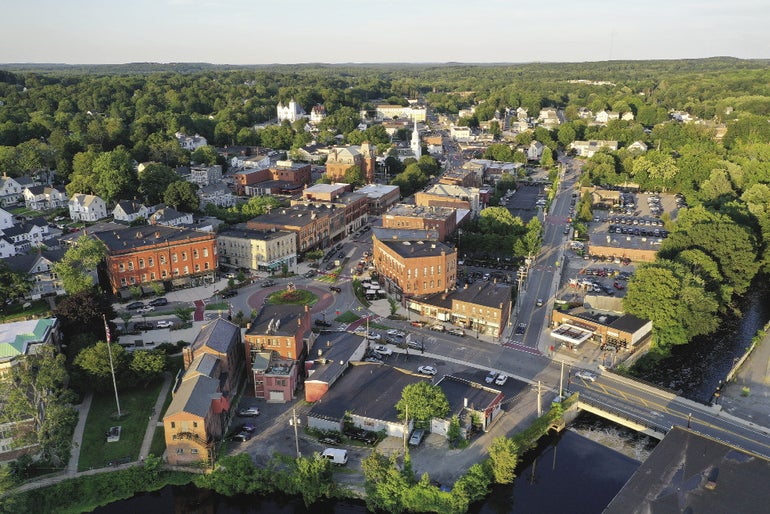Central Massachusetts is a region that likes to wax nostalgic about bustling main streets and tight-knit mill communities. A lot has changed over the decades, with shifts in the way people do their shopping, the decline of traditional manufacturing, and the rise in tech industries. And our communities have shifted with the times.
Get Instant Access to This Article
Subscribe to Worcester Business Journal and get immediate access to all of our subscriber-only content and much more.
- Critical Central Massachusetts business news updated daily.
- Immediate access to all subscriber-only content on our website.
- Bi-weekly print or digital editions of our award-winning publication.
- Special bonus issues like the WBJ Book of Lists.
- Exclusive ticket prize draws for our in-person events.
Click here to purchase a paywall bypass link for this article.
Central Massachusetts is a region that likes to wax nostalgic about bustling main streets and tight-knit mill communities. A lot has changed over the decades, with shifts in the way people do their shopping, the decline of traditional manufacturing, and the rise in tech industries. And our communities have shifted with the times.
Three places in the region, Hudson, Marlborough, and Fitchburg, offer examples of three different ways to revitalize local economies. They also have something in common: In all three municipalities, economic development professionals say a key element of their success has been collaboration among businesses, local governments, nonprofits, and the general public.
Adding the toppings in Hudson
As Richard Braga, Hudson’s former police chief, remembers it, the town’s business district was very different in 1989 than it is today.
“We had a number of bars—some served food, some didn’t,” he said. “There was at least one bar that was termed a biker bar. And there was a lot of activity at those bars. It was more of a late-night downtown at the time.”
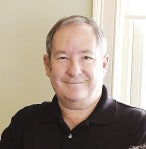
Today, Main Street dining establishments like Medusa Brewing Company and Rail Trail Flatbread Company draw visitors from well beyond the town limits during daytime hours and into the evening.
Hudson has repeatedly reimagined itself since its 19th-century beginnings as a mill town specializing in shoe manufacturing. It was part of the region’s tech boom in the 1980s and ‘90s, driven by companies like Digital Equipment Corp.
But, like many New England towns, it found the downtown core that helped define its identity losing the kinds of stores that attracted shoppers and diners.
Arthur Redding, owner of Hudson Appliance, which has been on Main Street for 53 years, recalls walking down the street at one point in 2008 and counting 34 empty stores. Determined to make a change, he and several other business owners formed the Hudson Business Association and set to work improving the downtown area and attracting new businesses.
The key move they made was helping to set up a Business Improvement District (BID). Under Massachusetts law, these are sections of a community in which all property owners pay a fee that is pooled together to support the district.
“I’ve always said the town gives you a plain pizza, but you want all the toppings,” Redding said. “So we have to put the toppings on.”
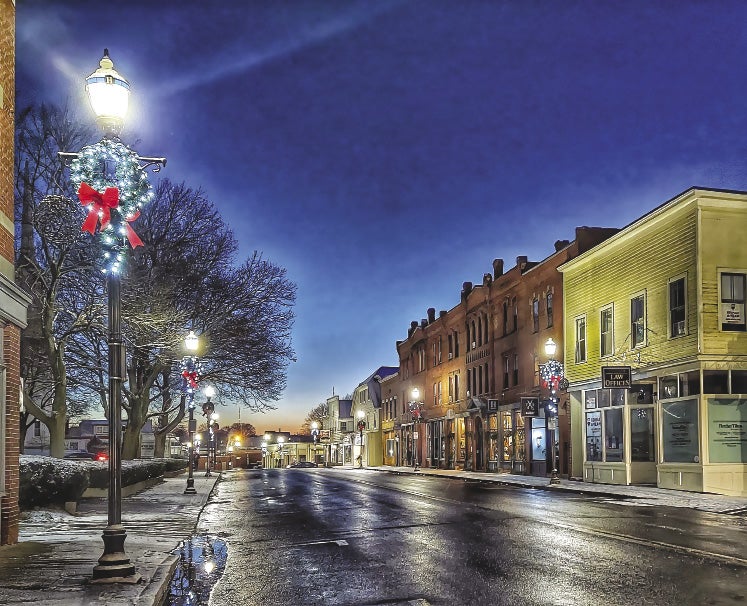
Those “toppings” include not just benches, flowers, murals, and other beautification measures but also practical help for local businesses. For example, Redding said, when COVID-19 shut down in-person retail businesses, many Hudson merchants wanted to apply for help from the federal government but didn’t have the expertise needed to deal with the paperwork. So the BID hired an accountant to help them out.
Braga, who today is the executive director of the BID, said the financing mechanism makes a huge difference. Where other towns collect dues of $40 or $100 from local businesses, the assessment on property owners provides Hudson with $150,000 a year to invest in everything from concerts by well-known entertainers to seasonal festivals. In recent years, Hudson, which is one of just 10 communities in the state currently using a BID, has had officials from dozens of other communities visit to get ideas for their own downtowns.
Perhaps more importantly for Hudson’s economy, the vibrant business district has proved to be a draw for other kinds of companies. Braga recalls one high-tech manufacturer that picked Hudson over other potential places to set up a plant partly because of its attractive places to take clients out to lunch.
“At the end of the day, they chose Hudson simply because we have a vibrant downtown,” he said.
Feeding the big fish in Marlborough
Like Hudson, its larger neighbor Marlborough was a 19th-century industrial town and then a part of the late 20th-century tech surge around I-495. Since then, it’s been expanding its economy in all directions.
According to Meredith Harris, executive director of the Marlborough Economic Development Corp. (MEDC), two game-changers that got their start in the 1990s were the Solomon Pond Mall and the New England Sports Center, an eight-rink ice-skating facility that draws people from around the world for hockey tournaments and other events. Those visitors contribute to the economic health of downtown businesses and to the 11 hotels that now operate in the city.
MEDC formed in 2006 to help advance more big projects by attracting and working with companies interested in the city.
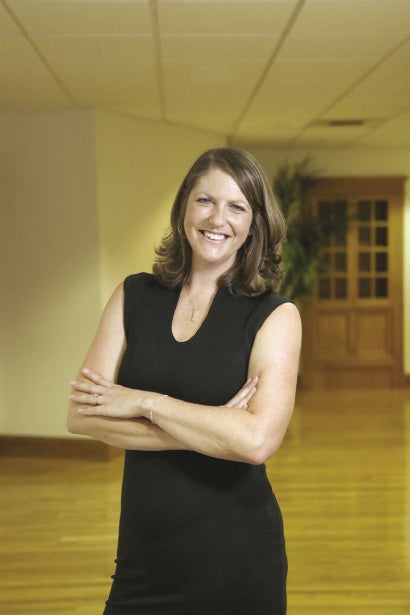
“Folks came to the table and said we have to have a group that’s dedicated to business attraction, retention, speaking to the business community,” Harris said.
MEDC began as a membership organization but since 2011 has been funded through a local option excise tax on hotel rooms administered through the city. It proved its value in the early 2010s, helping developer Atlantic Management transform a former Hewlett-Packard campus into a mixed-use development with the help of a city overlay district. Today, the district is home to big employers like Quest Diagnostics, smaller companies, homes, and hotels.
While that project was moving forward, discount retailer TJX Cos. bought two office buildings in the city, and Boston Scientific Corp. moved its global headquarters there. Like Atlantic’s redevelopment efforts, both these projects got support through a city tax-increment financing (TIF) deal, which exempts companies from some taxes on the increased value of real estate that they upgrade.
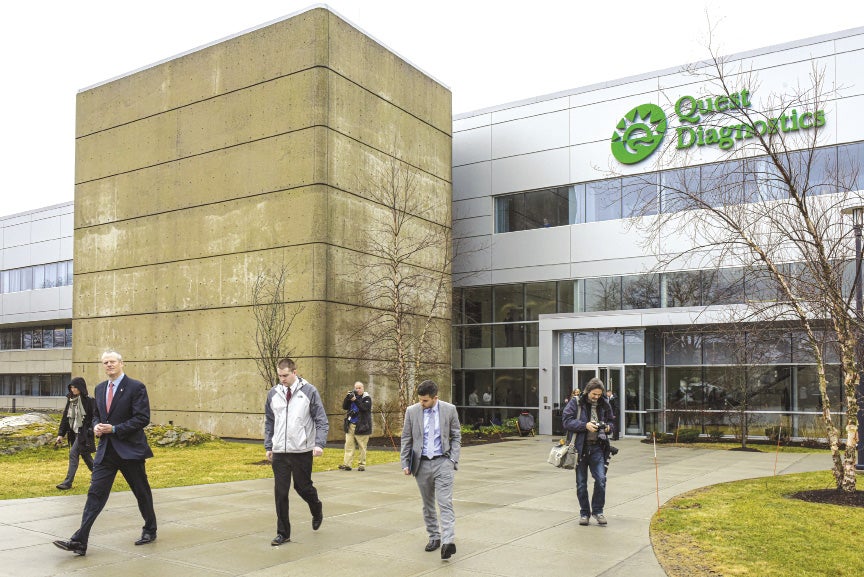
Harris said part of the MEDC’s role is to figure out what kinds of business development would best help the city and how tools like zoning and financing can support those businesses.
“It’s enabled us to be more nimble and really go after what the city is looking for,” she said, “Like an ombudsman or a concierge service.”
Harris said targeting large corporations has helped the city as a whole. Their employees eat and shop locally, and they contribute to local charities and partner with schools. For example, computer services firm Technium offers a “cyber camp” that lets high school students get a certification in networking.
“We like to say ‘the big fish feed the small fish,” Harris said.
Destination: Fitchburg
Sitting farther from Boston, Fitchburg and other communities of North Central Massachusetts weren’t at the center of the tech boom three decades ago. However, their traditional manufacturing base has undergone a more gradual transformation to high-tech manufacturing of products like medical devices.
At the same time, the city—once widely seen as struggling with crime and poverty, especially downtown—has benefitted from its location in a somewhat less hectic part of the state.
“Forty years ago we really didn’t have much of a tourism economy,” said Roy Nascimento, executive director of the North Central Massachusetts Chamber of Commerce. “The region really has emerged as a destination for visitors and groups.”
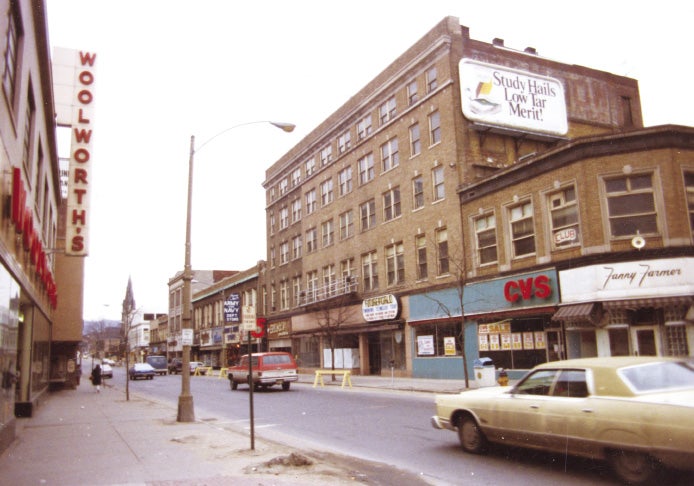
One flagship in that development is Great Wolf Lodge, the indoor water park and hotel that opened its first New England location in Fitchburg in 2014. Another is Game On Fitchburg, a 100-acre sports center featuring everything from soccer tournaments to ax-throwing parties.
As with Marlborough's sports center, these kinds of attractions bring visitors who stay to eat downtown and explore other area attractions.
“That is transforming the downtown, bringing a lot more vitality,” Nascimento said. “It helps create additional businesses.”

Sarah Tavitian, a small business developer at NewVue Communities, a nonprofit addressing housing and small business needs, said the downtown is now alive with restaurants and shops catering to both locals and visitors. Aside from tourists, many individuals and families are choosing the city as a less expensive option than communities farther east with access to both green space and city life.
“Fitchburg really is up and coming,” Tavitian said.
She said it’s helpful that people have multiple transportation options thanks to the commuter rail stations downtown and in West Fitchburg and the Twin Cities Rail Trail that connects Fitchburg and Leominster. She credits the chamber of commerce and other local boosters with marketing local businesses so that people visiting for any reason, or moving in, know what the region has to offer.
Nascimento said Fitchburg has worked hard to become more friendly to both businesses and housing developments. For example, it’s streamlined its permitting processes, used TIFs to attract companies like Great Wolf Lodge, and, five years ago, moved to a single tax rate, reducing taxes on commercial establishments.
“I think that reputation has taken some time, but it’s been changing,” he said. “A lot of folks have discovered Fitchburg.”
